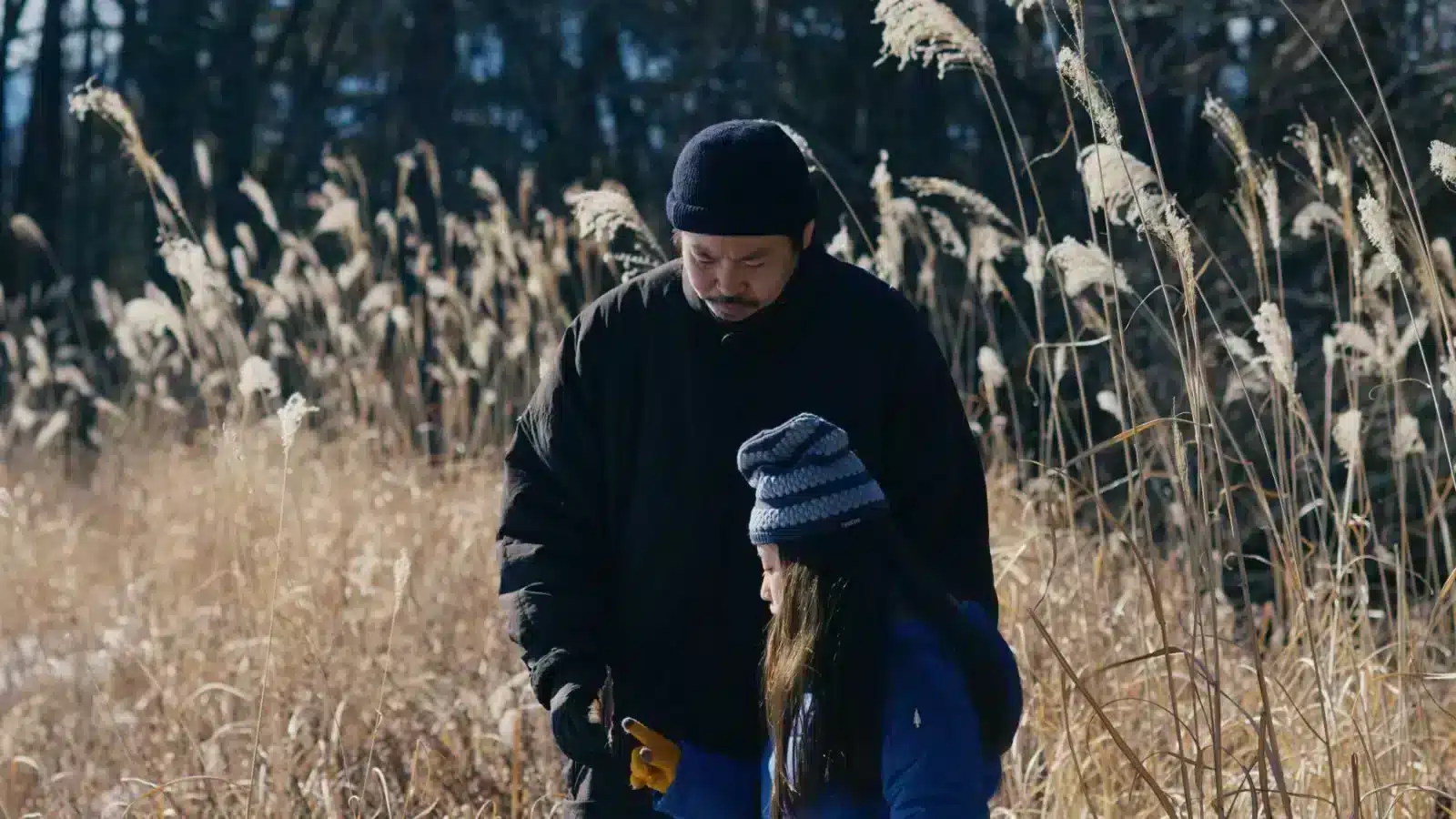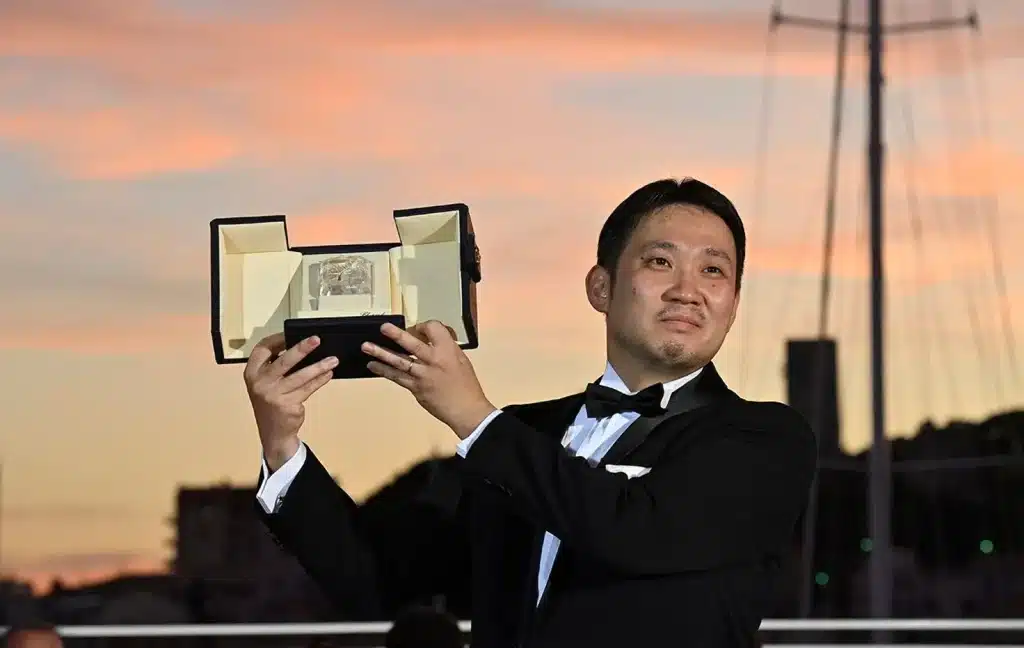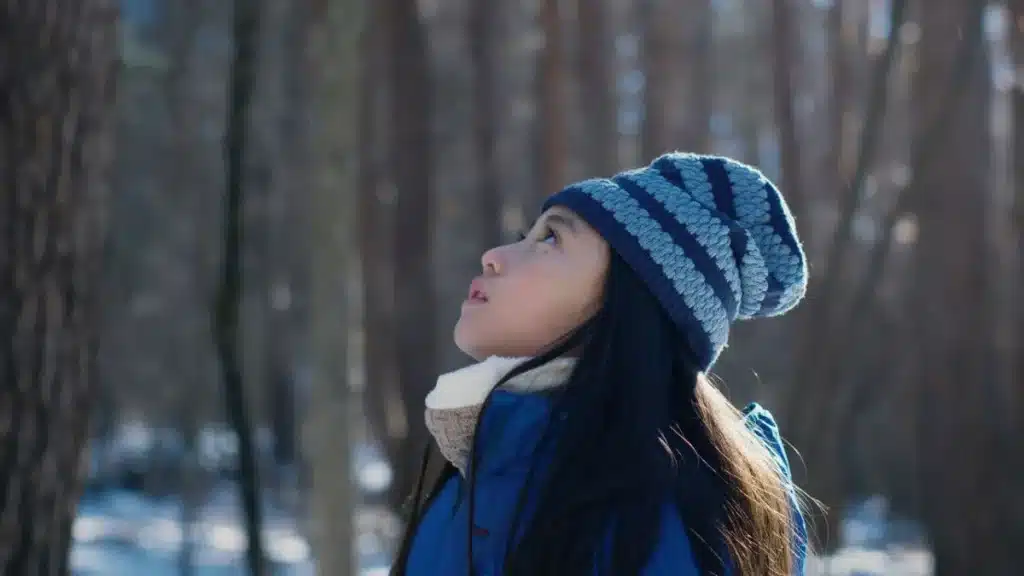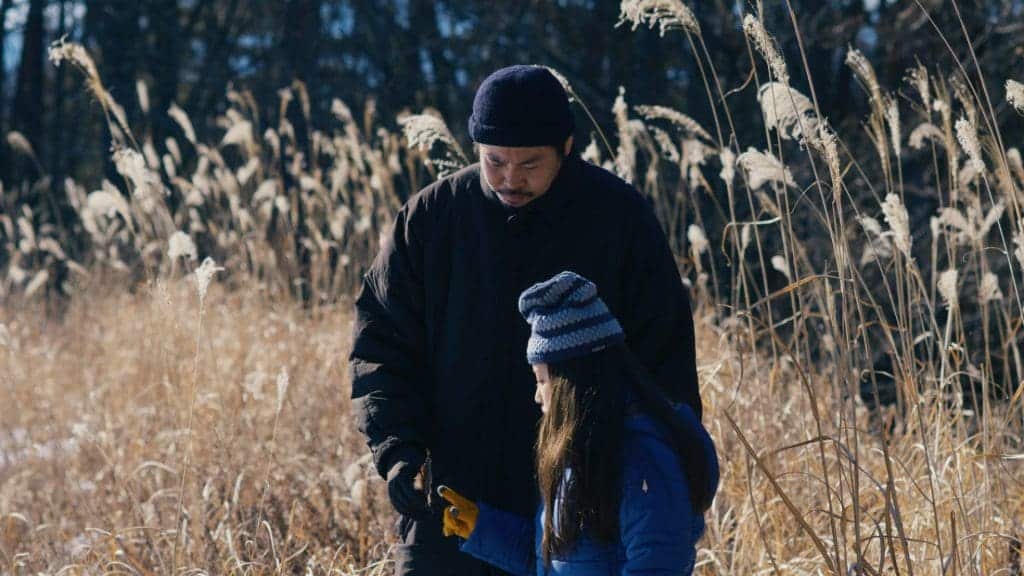
It’s hard to think of a filmmaker who is occupying a more interesting space in the cinematic ether right now than Ryusuke Hamaguchi.
For a long time the Japanese writer-director was comfortably settled in a lane that fantastic, boundary pushing arthouse filmmakers often are: the festival circuit. His films are long and patient, he asks hard questions of his audience, and rarely offers easy answers as a reward.
Universally, these qualities are adored by niche, festival-going, cinephile audiences, and they were thought to be despised by modern audiences. But every now and again, the two worlds slip through the glitches of their respective matrixes and collide, and In 2021/2022, the centre of that collision was Ryusuke Hamaguchi. Drive My Car, a three hour adaptation of the notoriously-hard-to-adapt writer Haruki Murakami’s short story of the same name, won big at the Cannes Film Festival, taking home multiple prizes, including Best Screenplay. Six months later it won Best Foreign Language Film at The Golden Globes.
Then it took home the same award at the BAFTAs. Then, just over seven months after its world premiere, it won Best International Film at the Academy Awards, and became, astonishingly, the first Japanese film ever to be nominated for Best Picture. Not only did academy voters love it, but the mainstream had adopted the film too—it became a letterboxd favourite, with almost 300,000 logs to date (for scale, his previous film Asako I & II has received only ten percent as many logs) and made $15.4 million at the box office from a budget of $1.3 million, which, for an arthouse flick, is more impressive than you might think.

This isn’t the first time the underdog had struck a nerve with academy voters and the mainstream public alike: Parasite did it a few years earlier, and Everything Everywhere All At Once did it the year after. But then again, both of those films have an accessibility that Drive My Car doesn’t necessarily have, which makes its rise to popularity even more extraordinary, even if not quite at the sheer scale of Bong Joon-ho and The Daniels’ respective Oscar winners. Hamaguchi has always made films the unconventional way: Happy Hour is a five hour odyssey about the domestic lives of four 30-something women in Kobe; Drive My Car dedicates considerable screentime to extended rehearsal scenes for a multilingual stage adaptation of Uncle Vanya. Even his release pattern is irregular—he released The Wheel of Fortune and Fantasy in the same year as Drive My Car, and as a result it flew straight under the radar (a tragedy, as it was the best film of that year only after Drive My Car).
It’s interesting then, considering all eyes are on him, that Hamaguchi’s latest film Evil Does Not Exist might just be his biggest surprise yet, and another sharp left turn for the filmmaker. Evil Does Not Exist is set in a rural Japanese village, Harasawa, where the small community that lives there have crafted an idyllic ecosystem in harmony with the expansive nature that surrounds them. This harmony is abruptly threatened when Tokyo-based mega-corp Playmode arrives with construction plans for a “glamping” site that, if allowed to proceed, will throw the ecological health of their home into disarray. Led by Takumi, single parent of a young daughter, Hana, and staple of the community, the villagers decide to challenge the glamping initiative.
Evil Does Not Exist started out as a 30 minute short that was originally intended as a collaboration with composer Eiko Ishibashi, who, after composing the score for Drive My Car, reached out to Hamaguchi to create visuals for her live performances. It was a creative process that initially stumped the filmmaker, which, he tells me at the 80th International Venice Film Festival, where Evil Does Not Exist is holding its world premiere, helped him evade the pressure of following up Drive My Car. “I was probably feeling some kind of pressure beforehand, but with this film I wasn’t working how I usually work, and so it helped me escape all that expectation. I was putting a lot of effort into realising an idea—into searching for it, and I had never made a film in this little amount of time before. When we first embarked on this journey I wasn’t sure what I should make,” he says. “I figured she wouldn’t have asked me if she wanted abstract images, so we were exchanging ideas, and yet we weren’t entirely sure what we should shoot. I thought that if I went out to where she works, I would be able to find something that could connect me to her music, and, in fact, where she lives, and where we ended up shooting, is surrounded by this beautiful and bountiful nature that you see in the film. Through researching and talking to local people from that area I was able to figure out and build the story out of that.”
The original name of the film was Gift, seemingly a far cry from the ominous title that audiences have come to associate with the film. I mention this to Hamaguchi, but he’s quick to remind me that while gift can, of course, mean present, in German it translates to poison. He describes it as a word that “contains two faces” and immediately the title feels aligned with the film’s narrative, which sees a couple of toothy-grinned Playmode representatives arrive at Harasawa to upsell the catastrophic glamping plan to the community. “Regarding Evil Does Not Exist, that really comes out of having seen and observed the area—when we were location scouting around nature I came up with the phrase…it’s not to say that the film is trying to say that there’s no evil in the world. That’s not the message of this film. What I’m more interested in is the nervous tension that can be created between the film itself and the title.”

While the initial concept of the film evolved from a half an hour concert short into an official 100 minute feature, Ishibashi’s compositions are to Evil Does Not Exist what Phillip Glass’ score is to Koyaanisqatsi, or, more recently, Marcelo Zarvos to Todd Haynes’ May December. Ishibashi’s melancholic string-led instrumentals go hand-in-hand with Evil Does Not Exist’s extended shots of the Japanese mountainside—peaceful pans of icy blue skies and coats of snow pinned to the ground by the tall, slim trees of the forest. “The natural landscapes has some kind of an echo with Eiko’s music” Hamaguchi says, “ whether it’s the rustling of the trees, or the water moving, or the dust flying, the changing of the light…all of this felt like it was in harmony with Eiko’s music.” The composition is like a character in and of itself, though unlike Koyaanisqatsi, which carries Glass’ score beautifully throughout the entire film, Hamaguchi is acutely aware that the absence of music carries its own entity, and at multiple points in the film he cuts the audio sharply, snatching the audience out of their trance. It’s a cleverly executed tug of war between music and silence that emphasises the ongoing strife between the blissful Harasawa and the capitalistic disruption they’re facing.
That strife is something Hamaguchi has been feeling for a while, and when he’s asked if he thinks Japanese society is on the verge of a big shift, he thinks long and hard before replying, “Yes, I think very much so, I think a lot is changing and society is changing. I would say it’s feeling like the beginning of a collapse. Even though the event that I’m depicting in my film is a small event, it’s an incredibly sloppy plan that still gets pushed through and results in terrible consequences. I think this sense of moving forward is so far exceeding in a way that feels almost too late to recuperate. I don’t think this film has a direct message, but it does reflect those feelings in a way.”
Though the issues portrayed in the film clearly weigh heavily on the filmmaker, he’s careful not to totally condemn the two corporate suits in Evil Does Not Exist (played by Ryuji Kosaka and Ayaka Shibutani), even if, at times, he humiliates them and the world they hail from. On the contrary, the second act of the film is told from their POV, as they wrestle with the effects their plans will have on Harasawa. It’s here we circle back to what makes Hamaguchi such an invigoratingly challenging voice, and one of the great observers of human nature in contemporary filmmaking.

It’s a thread we see throughout all of his films: moral conundrums that are so uncomfortably reflective of the human experience that they’ll force you to interrogate yourself and call out your own hypocrisies. But it’s an exorcism delivered without an ounce of self righteousness. The ending of Evil Does Not Exist will be mulled over by audiences for years to come. It arrives like a violent dream, and like such a dream, the truth of it is abstracted by clouds of fog. “I can’t clearly verbalise the ending either.” Hamaguchi admits. “At the same time, it’s not that I feel a certain discomfort about what happens. I feel like the end feels necessary, although I can’t quite put into words as to why. Myself and Hitoshi didn’t talk about the motives behind his actions, but when I asked him to act it out, something about his acting felt very truthful. What is interesting to me is that towards the end of the film we have more information about the characters who are coming in from the city, and by the end they’re wondering why this happened to them. The film, nor Takumi, the main character, gives an answer to this question. But that’s partly the aim of this film, to continue to probe ourselves. Why is this happening to us?”
I close our conversation by asking him about Kiyoshi Kurosawa, the great Japanese director of Cure, Pulse and Tokyo Sonata, whom Hamaguchi studied under and eventually became a close collaborator with (he co-wrote Kurosawa’s brilliant 2020 noir-thriller Wife of A Spy). What was the greatest lesson he learnt from the master? “Actually, while we were shooting the film, I took a day off to attend Kurosawa’s last lecture at the university where I graduated from. He left his students with an idea: “shoot something that will surprise even yourself.” That reverberated with me. I went back to set with the intention of shooting a shot that would surprise myself, and even him. There are a few shots in this film that fulfil this, but…” he says, with a hint of a grin, “I don’t dare tell you which ones.”



